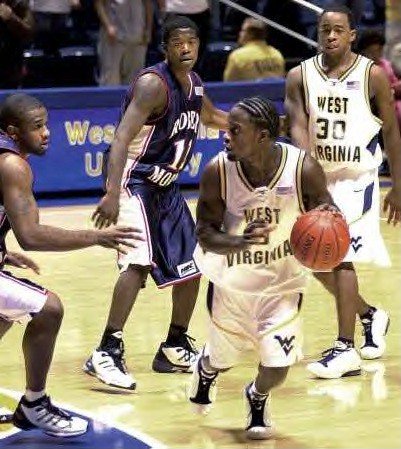Does the NCAA Need Stronger Enforcement Mechanisms? Difficult Times Call For Radical Solutions…
Posted by Chris Johnson on August 20th, 2012Christopher Johnson is an RTC columnist. He can be reached @ChrisDJohnsonn.
The college athletic franchise has long championed itself as a strictly “amateur” system, with financial compensation for athletes standing as one of the cardinal sins behind an elaborate and unwieldy set of rules and regulations. The legislation preventing such illicit activity is diverse and wide-ranging, and several prominent athletic programs have been subjected to its punitive aptitude in the past decade. USC football received heavy sanctions in June 2010 including a two-year postseason ban and severe scholarship reductions as a result of a pay-for-play scandal surrounding former star running back Reggie Bush. Connecticut men’s basketball lost its head coach, Jim Calhoun, for three games last season among other restrictive penalties for recruiting violations committed during the pursuit of highly-touted shooting guard Nate Miles. The list of transgressions in the past few years alone is considerable, but the retributive measures have done little to prevent other programs from repeating previous mistakes and inventing new ways to game the system. College sports’ amateurism label is continually disgraced by programs willing to risk punishment for the end result of competitive advantage, whether that is through recruiting violations, pay-for-play, or some combination therein. And the NCAA, for all its intricately defined policing mechanisms and retributive wherewithal, remains largely impotent in preventing forbidden activity.
Instances of NCAA rule-breaking are revealed with frequent regularity, but the organization’s monitoring policies have done little to stem the tide of illicit behavior in the world of power conference athletics. The lawless activity has remained a fixture in the seedy underground world of college hoops recruiting, from Michigan’s dealings with booster Ed Martin to USC’s illegal recruitment of O.J. Mayo to UConn’s mishap with Miles. On Saturday, The New York Times‘ Pete Thamel provided another excellent example of the prevalent and deep-rooted iniquity that goes part and parcel with the process of courting the nation’s top high school players. In fact, his story takes us back more than a decade ago and offers up detailed insight for just how pervasive and systematically entrenched the criminal activity has become. Jonathan Hargett, who is now serving a nearly five-year sentence on drug charges after a promising basketball career was derailed by agents, runners, drugs and a number of other regrettable choices, is the subject of focus. According to Hargett, who played one season at West Virginia under coach Gale Catlett, agents approached him seeking to engage in financial-based representation when he was 15 and ultimately steered him toward the Mountaineers. Hargett’s wrongdoing was extensive, so much so that Dan Dakich, hired to replace Catlett (who retired shortly after Hargett’s one season in Morgantown), recounted vividly the specifics of Hargett’s institutionalized payment program: “They [agents] promised me $60,000 and only gave me $20,000,” Hargett told Dakich, according to the now ESPN sportscaster and radio personality. And even as Dakich departed what he called a “culture of dishonesty” after just eight days on the job, the NCAA could not compile a substantial body of evidence to punish West Virginia.











































